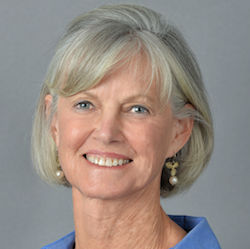
This past year has been a testimony to the resilience and dedication of workers throughout the healthcare system. And nowhere has been hit harder than the long-term care communities where frail elders lived. Almost 40% of COVID-related deaths have been in assisted living communities and nursing homes.
I have been keeping track of some of the conversations I’ve had with nurses and other team members who diligently show up every day to support their residents living in senior communities. Many of them had poignant observations about the residents living with dementia during this pandemic.
“It was so important for Mary that every morning she was at the door to the dining room to welcome each resident with her usual greeting, ‘Good morning. I love you!’ When we went into quarantine and Mary couldn’t leave her room, it was like she had no purpose. She needed that contact with everyone to start her day. Each morning when we would tell Mary she had to stay in her room again, she got so she didn’t want to get out of bed.
“I really learned from Mary that for people living with dementia, the importance of staying connected with others is so important.“
And a physician who has made it her life’s work to help support her patients with dementia said what she missed during those periods of quarantine was the individual “quirks” of each resident. She said she has a special fondness for those residents who are sometimes a “challenge,” because they are determined to express themselves and want to experience their day on their terms, not on a predetermined schedule.
“Every time I visited the nursing home, I could count on staff complaining to me about Gary. He never wanted to cooperate and would yell at staff who tried to get him to the dining room for meals, and he was starting to lose weight. I told staff that I didn’t want to hear any more complaints from them until they spent some energy trying to find out why Gary didn’t like to go to the dining room.
“After talking with family members, they learned that Gary had a history when he was younger of a type of irritable bowel syndrome that would cause severe cramping if he ate a large meal. He had, therefore, developed the habit of eating small snacks throughout the day and never joined the family for meals.“
The doctor went on to say that their experience with Gary was an “Aha!” moment, and they decided to make a commitment to know each resident as an individual and focus on developing a real relationship. Each staff member paired up with a favorite resident and dived deep into knowing that person better. They then acted as an ambassador, introducing that resident to other staff members.
The use of psychoactive medications was reduced, and the doctor said she received a lot fewer complaints about troublesome residents. When staff members did bring up a problem with a resident, the doctor would ask, “What do we know about her?”
This will be a year of healing as we recover from the pandemic. We can use what we have learned during this time to make the quality of life better for the people we support who are living with dementia. Asking ourselves, “What do we know about them?” is a good way to proceed.


